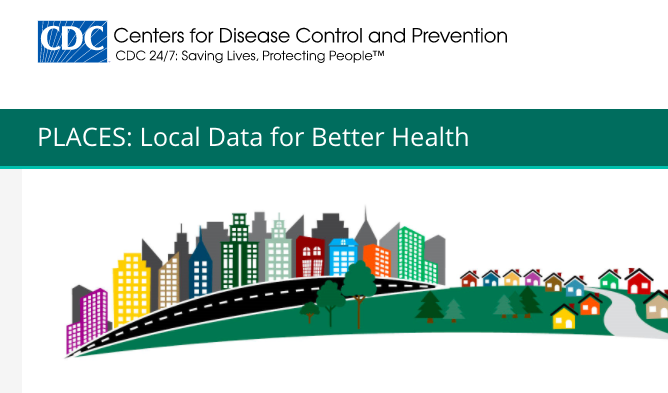Belonging & Civic Muscle as a Vital Condition
Belonging and Civic Muscle is about having fulfilling relationships and social support that people need to thrive. It’s about being part of a community and contributing to its vibrancy. Social support through friends, family, and other networks contributes to our practical and emotional needs, enhances mental well-being, helps us navigate the challenges of life, and reinforces healthy behaviors.
People with a stronger sense of efficacy, belonging, and social connectedness tend to live healthier, happier lives. At the community and neighborhood level, social cohesion strengthens social ties and engenders collective attachment. Higher levels of social cohesion are associated with higher levels of trust, cooperation and social capital, providing the necessary foundation for working together across groups and sectors, and building the “civic infrastructure” for community members to co-create a shared future. These patterns can create a virtuous cycle – working together supports stronger communication and develops a sense of connectedness and mutual obligation. Aa people in a community feel valued and cared for, they become more confident and willing to participate in the community, contributing to its vibrancy and affecting change. Alternatively, a community built in silos that does not encourage connectedness can lead to a pattern of apathy, and without investment to reverse these patterns, decades of community decay.
Thriving Together: A Springboard for Equitable Recovery & Resilience in Communities Across America
This new report is a joint project of the CDC Foundation and Well Being Trust, coordinated with Community Initiatives and ReThink Health. The report acknowledges that we are now struggling and suffering through profound losses and ghastly experiences of systemic racism. Our resilience and humanity are being tested, yet we have the power to change course together. Communities across the country have an immense reservoir of energy, courage, and imagination. Our best hope for changing course is to organize local and national action around a single, unifying, measurable expectation: All people and places thriving—no exceptions. The report leverages the Vital Conditions for Well-Being framework to provide a "springboard" for communities in recovery and resilience that is imperative to this moment in time.
Find the full report and the library of resources and tools coming out of collaborative work to develop Thriving Together below, and scroll on for more resources to improve belonging and civic muscle in your community.
Thriving Together: A Springboard for Equitable Recovery and Resilience in Communities Across America
Resource - Report
Brought to you by Well Being Trust
Bringing the Vital Conditions to Life: Belonging & Civic Muscle
Story
-
 Original
Original
Brought to you by Community Commons
Thriving Together: A Springboard for Equitable Recovery and Resilience in Communities Across America
Library
Brought to you by Community Commons
Opportunities to Improve Belonging & Civic Muscle
- Cultivate community participation and leadership
- Resist the rise of hate and dismantle systemic oppression and racism
- Build vibrant, inclusive communities
Stories for Inspiration
Explore the stories below to read interesting, engaging content about what is happening at the state, national, and local level to improve belonging and civic muscle.
For Healthy Communities, Look Beyond Diet and Exercise
Story - Written
Brought to you by Yes! Magazine
How creative thinking helped Seattle flatten the curve
Story - Written
Brought to you by National Geographic Society
Published on 05/13/2020
How Does Our Sense of Belonging Shape our Mental Health?
Story
-
 Original
Original
Brought to you by Community Commons
Data Resources
Explore the data tools below to find data and related resources specifically relevant to belonging and civic muscle.
MIT Election Data + Science Lab
Tool - Data/mapping Tool
Brought to you by Massachusetts Institute of Technology Community Innovators Lab
Policy Resources
Explore the resources below that outline one or more policies that specifically seek to improve belonging and civic muscle.
Healing the Nation: Advancing Mental Health and Addiction Policy
Resource - Website/webpage
Brought to you by Well Being Trust
Community Tool Box: Influencing Policy Development
Tool - Toolkit/toolbox
Brought to you by KU Center for Community Health and Development: Community Tool Box
Action & Dialogue Guides
Explore below to find replicable, actionable content that is easily adaptable as a strategy to improve belonging and civic muscle, as well as guides and tools for in-person and virtual dialogues.
Communities WIN: A Community Guide for Dialogue and Action
Tool - Toolkit/toolbox
Brought to you by Community Commons
Published on 01/22/2020
Targeted Universalism: Expanding Belonging
Resource - Guide/handbook
Brought to you by Othering and Belonging Institute
Conversation Guide: Civic Renewal
Resource - Guide/handbook
Brought to you by Living Room Conversations
Eight Keys to Bridging Our Differences
Story - Written
Brought to you by Greater Good Science Center
Published on 07/22/2020
Beyond Allyship: Leveraging Activism Tools to Improve Transgender and Nonbinary Health
Story
-
 Original
Original
Brought to you by Community Commons
Published on 01/26/2022
About the Vital Conditions
Belonging and Civic Muscle is one of seven “Vital Conditions” that comprise the Vital Conditions for Health and Well-being framework. This is a useful framework for conceptualizing holistic well-being and the Conditions that give rise to it, as well as identifying opportunities to shift those systems and drive transformative community change and improvement. It brings together major determinants of health, exposing how parts of a multi-faceted whole work as a system to produce equitable well-being. Learn more about the framework:
































.png)


